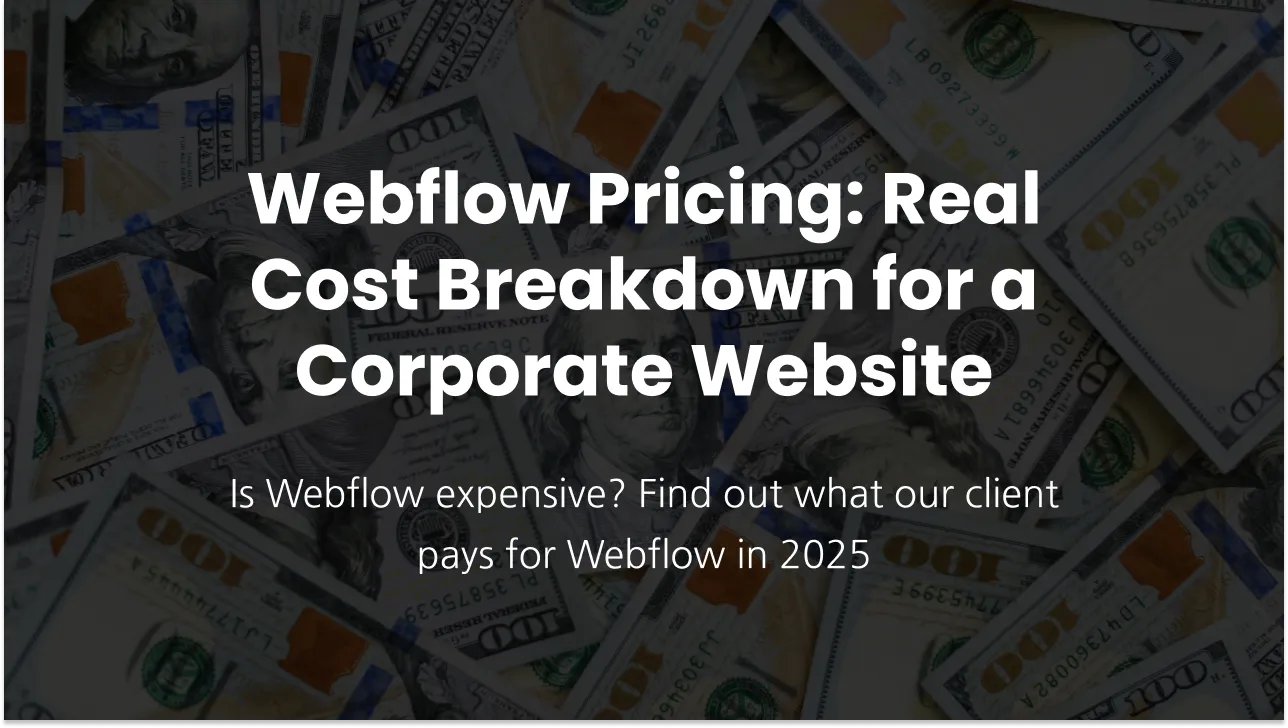I need a cookie consent for my website. Could you incorporate one?
Certainly! I can integrate any third-party solutions you prefer, or I can add an incredibly powerful cookie consent plugin specifically designed for Webflow from Finsweet.
The advantage of the latter option is that it's free, doesn't require any monthly or yearly payments, and is GDPR compliant.
The banner users see is fully customizable, allowing us to keep it simple or have some fun with it.

Options
There are a couple of options to choose from. The first one is an informational cookie message (not GDPR compliant) or what's called 'implied disclosure.' This type of cookie compliance informs users that cookies will be used on the site.
Another option is 'Opt-out of cookies,' a type of cookie compliance that loads cookies by default on the user's first visit to the site. The user then has the option to either continue browsing the site with cookies or deny them. If the user chooses to continue browsing with cookies, nothing happens, and they can proceed to use the site as usual. If the user opts to deny cookies, we remove the cookies from their browser, allowing them to continue browsing the site while disabling all scripts that issue non-essential cookies.
The third option is 'Opt-in to cookies,' which is a higher level of cookie compliance. It requires the user to specifically accept the use of cookies on the site before any cookies are issued. No cookies are given until the user clicks "Accept" or a similar confirmation button. If the user accepts cookies, we activate all scripts that use cookies, and they can continue using the site with cookies. It's important to note that scripts using cookies are not loaded on the page until the user explicitly accepts the cookie message. If the user chooses to "Deny" cookies, we allow them to continue browsing the site while disabling all scripts that issue non-essential cookies. They won't receive any cookies and will maintain this status throughout their time on your website.
With options 2 and 3, there's the possibility to add a Preference Manager—a button that enables users to open the Preferences component and change their cookie consent preferences.

What is GDPR Compliance?
GDPR compliance refers to adherence to the General Data Protection Regulation (GDPR), a comprehensive data protection law enacted by the European Union (EU) in May 2018. GDPR aims to enhance individuals' control over their personal data and unify data protection regulations across the EU member states. Here are the key elements of GDPR compliance:
1. Personal Data Protection
- Definition: Personal data includes any information that can identify an individual, such as names, email addresses, phone numbers, and more.
- Consent: Organizations must obtain explicit consent from individuals before collecting or processing their personal data.
2. Transparency and Information Rights
- Right to be Informed: Individuals must be informed about how their data is collected, used, and shared.
- Access Rights: Individuals have the right to access their personal data held by organizations.
3. Data Minimization
- Organizations should only collect data that is necessary for their specific purposes and not retain data longer than needed.
4. Data Security
- Organizations must implement appropriate technical and organizational measures to protect personal data from breaches, loss, or unauthorized access.
5. Data Breach Notification
- In the event of a data breach, organizations are required to notify the relevant authorities and affected individuals within 72 hours if the breach poses a risk to individuals’ rights and freedoms.
6. Data Protection Officer (DPO)
- Certain organizations are required to appoint a Data Protection Officer to oversee GDPR compliance and act as a point of contact for individuals and authorities.
7. International Data Transfers
- Organizations must ensure that any transfer of personal data outside the EU complies with GDPR requirements, typically ensuring adequate levels of protection in the receiving country.
8. Penalties for Non-Compliance
- Organizations that fail to comply with GDPR can face significant fines, up to €20 million or 4% of their global annual turnover, whichever is higher.
Do you need help with your Webflow website?
Subscribe
Get the latest on our services and Webflow—we’ll only send a newsletter when there’s something worth your time!






